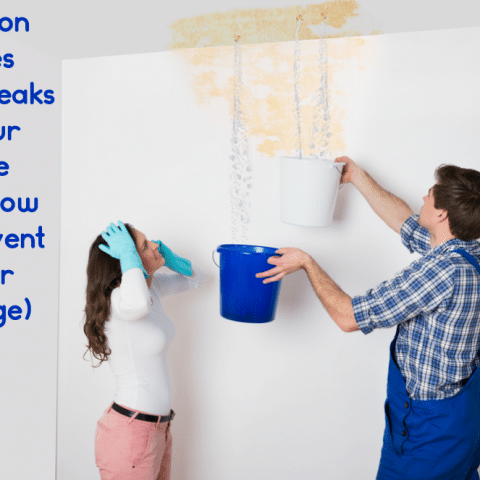Guide To Water Leakage Discovery In The House
Guide To Water Leakage Discovery In The House
Blog Article
Just how do you actually feel in regards to Detecting hidden plumbing leaks?

Early detection of leaking water lines can mitigate a potential calamity. Some small water leakages might not be noticeable.
1. Examine the Water Meter
Checking it is a guaranteed method that helps you discover leakages. If it moves, that suggests a fast-moving leak. This means you might have a slow-moving leak that could also be below ground.
2. Examine Water Usage
Assess your water bills as well as track your water usage. As the one paying it, you ought to discover if there are any kind of inconsistencies. If you identify sudden changes, despite your usage being the same, it indicates that you have leaks in your plumbing system. Remember, your water costs ought to drop under the same variety on a monthly basis. An unexpected spike in your costs indicates a fast-moving leakage.
Meanwhile, a consistent rise monthly, despite the very same habits, shows you have a sluggish leakage that's additionally slowly rising. Call a plumber to completely inspect your home, specifically if you really feel a cozy location on your flooring with piping underneath.
3. Do a Food Coloring Test
When it pertains to water intake, 30% originates from commodes. Examination to see if they are running correctly. Decrease flecks of food shade in the storage tank and also wait 10 mins. If the shade in some way infiltrates your bowl throughout that time without flushing, there's a leak between the container and bowl.
4. Asses Exterior Lines
Don't fail to remember to check your outdoor water lines also. Examination spigots by attaching a yard hose. Needs to water permeate out of the link, you have a loose rubber gasket. Replace this and also ensure all connections are limited. If you have actually obtained a lawn sprinkler, it will certainly help get it professionally took a look at and maintained annually. One little leakage can lose lots of water and also increase your water bill.
5. Analyze the scenario and inspect
Homeowners need to make it a practice to examine under the sink counters as well as even inside cupboards for any kind of bad odor or mold and mildew development. These two warnings suggest a leak so punctual focus is needed. Doing routine evaluations, even bi-annually, can conserve you from a major issue.
If you recognize your home is already old, keep a watchful eye on your heating systems, tubes, pipes and so on. Look for stainings and weakening as many appliances and pipes have a life expectancy. They will likewise normally degrade as a result of tear and put on. If you believe leaking water lines in your plumbing system, do not wait for it to escalate. Call a professional plumber as soon as possible so you do not wind up with a horrible mess in your home.
Early detection of leaking water lines can mitigate a possible calamity. Some small water leaks may not be noticeable. Inspecting it is a guaranteed way that helps you uncover leaks. One tiny leakage can squander heaps of water and also surge your water expense.
If you presume leaking water lines in your plumbing system, don't wait for it to intensify.
How to Know If Your Home Has a Hidden Leak
Water Meter Reveals Inexplicable Water Usage
If you’d like to test whether or not there’s a leak somewhere in your home, you can do this using your water meter. Here is how to conduct the test:
Don’t use any water in your home for at least 30 minutes; this also means not turning on faucets or water-using appliances.
Go outside, and check your water meter for activity.
If your water meter shows that there was activity, even though no one was using any water, this proves that there is a leak in your home.Visible Mold or Mildew Growth
Leaks behind walls create moist, dark environments that allow mold and mildew to grow and thrive. Eventually, you might see mold growth forming on the wall closest to a hidden leak.
If mold is growing in an area that receives a high amount of moisture, such as a bathroom, it may simply be an indication that better ventilation is needed. However, if you see mold growth on a wall or the ceiling in an area where you would not expect, you probably have a hidden leak.
Musty, Mildew Odor
Sometimes you might not be able to see the mold or mildew that is growing as a result of a leak. However, the smell can give the problem away just as easily. If you catch a whiff of something musty, there’s a good chance that old water is collecting somewhere in your home that you can’t see.
Stained/Warped Walls, Ceilings, or Floors
When your home soaks up water, a variety of red flags can become visible, including ceiling stains, bubbling drywall, warped walls, and sagging floors. While these issues can be caused by excess humidity, they can also be signs that a pipe or plumbing connection has started leaking behind your walls.
Inexplicably High Water Bill
After a while, you get a general sense for what your water bill should be. If you own a pool or sprinkler system, your bill will tend to be higher during summer. However, if you receive a water bill that seems especially high, and you can’t figure out what caused it, then you may have a hidden leak somewhere that’s increasing your bill.
https://www.plumbingjoint.com/blog/2019/july/how-to-know-if-your-home-has-a-hidden-leak/

We are very curious about Locating water leaks and I am praying you enjoyed our blog entry. If you appreciated our blog posting please don't forget to pass it around. We love reading our article about Detecting hidden plumbing leaks.
Report this page